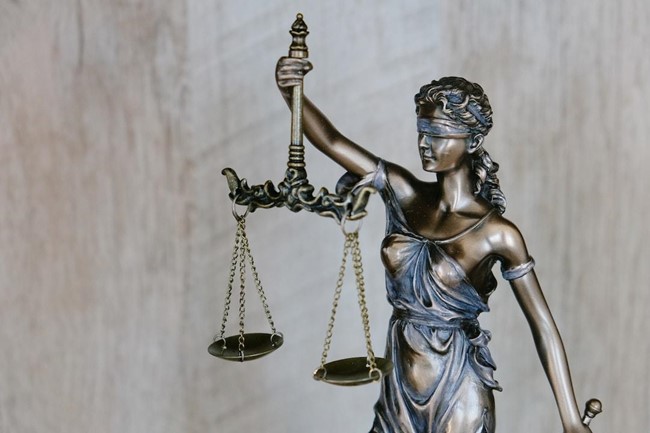Very often, an employee is suspended while an investigation is conducted into allegations of misconduct or pending the holding and outcome of a disciplinary hearing. South African labour laws do not require such a suspension to be anything more than “fair”, and there is no minimum or maximum time within which the investigation must be concluded, or in which the enquiry process finalised. However, since the suspension of an employee can be challenged as an unfair labour practice, the courts and CCMA often have to deal with challenges to an employee having been suspended. Recent cases give some guidance in this regard.
On 7 February 2019, the Constitutional Court handed down a judgment in Stokwe v Member of the Executive Council: Department of Education, Eastern Cape CCT 33/18 relating to whether an inordinate delay in finalising the disciplinary process of an employee rendered the dismissal procedurally unfair.
The employee was employed by the Department of Education in the Eastern Cape as the Deputy Chief Education Specialist in the Learners with Special Needs Education department and temporarily appointed as the Coordinator of the Scholar Transport Section. The employee awarded a temporary service contract to her husband to render transportation for the Department, but failed to obtain permission from the Head of Department to award this contract; the employee was subsequently charged with misconduct. The employee was suspended before the holding of a disciplinary hearing which was only held in March 2011; it was only in June 2011 that the employee was informed that she was found guilty of misconduct. The employee on various occasions requested reasons for their decision but did not receive a response and as a result, lodged an appeal against the internal process. By March 2013, the employee had still received no response and approached the Education Labour Relations Council where the arbitrator found that any prejudice that the employee claimed to have suffered was ameliorated due to her continuous employment on full pay by the employer. The arbitrator further found that the disciplinary process was substantively fair, but remained silent on procedural fairness.
The crux of the above issue is whether the delay in disciplinary proceedings rendered the process procedurally unfair. In terms of section 188(1) of the Labour Relations Act (LRA) a dismissal must be procedurally and substantively fair. The LRA further states that disciplinary processes must be concluded in the shortest time possible. In Sanderson v Attorney- General 1997 (12) BCLR 1675 the court set down factors that determines an unfair delay which includes the length of the delay, the explanation for the delay, whether the employee has taken steps to speed up the process, establishing whether the delay caused material prejudice to the employee and the nature of the offence, are some of the factors that may play a role. In Riekert v Council for Conciliation, Mediation and Arbitration 4 BLLR 353 (LC) it was noted that the employer should justify when there is non-compliance with its disciplinary procedures and the procedure must still be substantially fair and reasonable.
The practical consequences of the above boil down to the principle of fairness, which applies to both the employer and the employee in the workplace. The employee has a right to a fair disciplinary hearing and the employer has the right to protect his workplace from misconduct. However, the employer cannot unreasonably prolong a disciplinary hearing, without any substantive reason. Similarly, an employer needs to ensure that there is a thorough investigation that is completed before resorting to formal disciplinary action. Difficulties arise in achieving a balance of fairness between both the employer and the employee in the same situation. A distinction of a fair delay in disciplinary proceedings can be seen in the South African Policing Union obo Matthys/ South African Police Service (2019) 27 SSSBC where the employer’s delay in finalising an employee’s disciplinary process was due to the employer waiting on the Independent Police Investigating Directorate to complete their investigation. This was accepted as a substantively fair reason in delaying a disciplinary procedure and did not amount to an unfair labour practice.
The Constitutional Court in Stokwe, taking into account the above, found that any procedure to discipline an employee should be prompt and fair and that the disciplinary process should be concluded in the shortest time possible. Also, if an employee is retained after a disciplinary procedure is instituted it may point out that the relationship between the employer and the employee has not broken down. The Constitutional Court concluded that the delay in finalising the disciplinary proceedings in the above matter rendered the dismissal to be procedurally unfair and remitted the matter to the Labour Court to decide on appropriate relief.
In addition, the Constitutional Court handed down a judgement on 19 February 2019 in Allan Long v South African Breweries (Pty) Ltd and Others CCT 61/18, relating to a situation in which an employee had not been given an opportunity to make representations as to why he should not be suspended, before the employee implemented the suspension. The Labour Court stated that when dealing with a precautionary suspension, in which the employee’s full salary is provided to the employee in question, there is no need for an employee to be allowed to submit representations, and there is no prejudice to the employee. The Constitutional Court agreed with the Labour Court in this aspect and stated that the dismissal was fair and the employee should not be reinstated.
Therefore, in instituting disciplinary proceedings employer’s should ensure that the procedure is substantively fair, namely that there was misconduct on the part of the employee that warrants a disciplinary hearing and the institution and completion of the disciplinary process renders fairness to both the employer and employee such that the process is thorough yet completed in the soonest time possible.
Bradley Workman-Davies is the Director at Werksmans Attorneys.






















